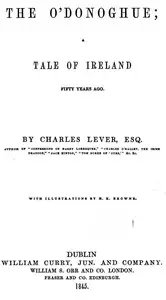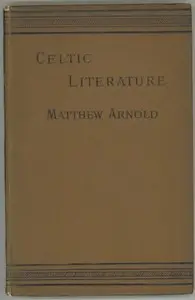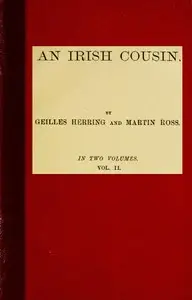"Celt and Saxon — Complete" by George Meredith is a story set in the early 1900's. It follows Patrick O'Donnell, a young man from Ireland, who journeys to North Wales to find Mr. Adister, a wealthy landowner. Patrick hopes to get the location of Miss Adiante Adister because she is his brother's former love. The story dives into ideas of love, staying true to family, who someone is, and the differences between Celtic and Saxon backgrounds, by exploring what Patrick and other characters are thinking and feeling. The book starts with Patrick thinking about his trip and how he feels about his family's history and the Adister family. As he travels through beautiful Wales, he remembers past events and thinks about love and disloyalty, mostly about Adiante and his brother Philip's sadness over her. When Patrick meets Mr. Adister, their talks show the hidden problems in their families and the unfair ideas they have about different cultures.

Celt and Saxon — Complete
By George Meredith
Amidst family secrets and cultural divides, a young Irishman's quest to find a lost love unearths a complex web of emotion and heritage.
Summary
About the AuthorGeorge Meredith was an English novelist and poet of the Victorian era. At first, his focus was poetry, influenced by John Keats among others, but Meredith gradually established a reputation as a novelist. The Ordeal of Richard Feverel (1859) briefly scandalised Victorian literary circles. Of his later novels, the most enduring is The Egoist (1879), though in his lifetime his greatest success was Diana of the Crossways (1885). His novels were innovative in their attention to characters' psychology, and also portrayed social change. His style, in both poetry and prose, was noted for its syntactic complexity; Oscar Wilde likened it to "chaos illumined by brilliant flashes of lightning". Meredith was an encourager of other novelists, as well as an influence on them; among those to benefit were Robert Louis Stevenson and George Gissing. Meredith was nominated for the Nobel Prize in Literature seven times.
George Meredith was an English novelist and poet of the Victorian era. At first, his focus was poetry, influenced by John Keats among others, but Meredith gradually established a reputation as a novelist. The Ordeal of Richard Feverel (1859) briefly scandalised Victorian literary circles. Of his later novels, the most enduring is The Egoist (1879), though in his lifetime his greatest success was Diana of the Crossways (1885). His novels were innovative in their attention to characters' psychology, and also portrayed social change. His style, in both poetry and prose, was noted for its syntactic complexity; Oscar Wilde likened it to "chaos illumined by brilliant flashes of lightning". Meredith was an encourager of other novelists, as well as an influence on them; among those to benefit were Robert Louis Stevenson and George Gissing. Meredith was nominated for the Nobel Prize in Literature seven times.













